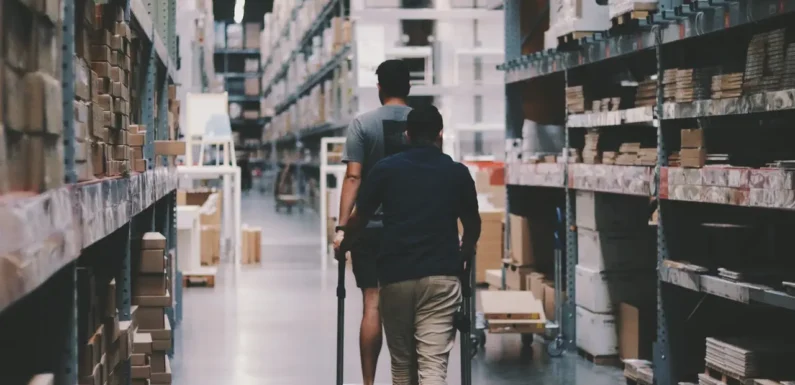
Recent changes in consumer behavior have put the eCommerce industry in a tricky situation. Online shoppers have become accustomed to the convenience and speed of online shopping. People expect to find the products they want easily online and for that product to arrive at their doorstep within the week. But now consumers are adding another demand to the list: that the product is delivered in an environmentally friendly manner.
This has forced online retailers to completely reevaluate their shipping services and delivery methods. Companies began to change everything from the type of packaging used to the fuel in their delivery trucks. The result of all of these efforts is a practice known as green logistics.
What is Green Logistics?
Green logistics is a collection of practices that aim to make the supply chain more environmentally friendly. These practices range from simple and quick-to-implement to complex and expensive. For example, reusing packaging from returned products is a quick and easy way to make your logistics more sustainable. On the other hand, investing in an eco-friendly fleet of delivery trucks will require more money and effort. Let’s take a look at some green shipping strategies and the effect they have on ecommerce businesses.
Green Shipping Strategies:
Consider Pop-up Warehouses
Pop-up warehouses are a fairly new method of storing products. These warehouses are temporary storage facilities for companies that expect a short-term influx of orders. This makes them perfect for businesses that experience seasonal fluctuations in sales. Pop-up warehouses are generally smaller and lower-tech than centralized warehouses, but they have their advantages. The smaller size of these warehouses means they can easily be positioned closer to customers. This cuts down on the amount of carbon produced during delivery.
Pop-up warehouses can also double as on-site retail locations or pick-up points. Using a pop-up warehouse as an on-site retail location can sometimes end up completely offsetting the cost of renting a small warehouse. Pick-up points are incredibly convenient for customers who are already in the area. In either scenario, the delivery process is completely eliminated, meaning no air pollution is created in the process.
Photo by Pixabay
Reevaluate Your Packaging
One of the easiest and most straightforward ways to reduce the amount of physical waste a company produces is the reevaluate the packaging used. Traditional protective packaging such as styrofoam peanuts can take decades to decompose once they’re thrown out. Switching these materials for more sustainable alternatives can also make packages lighter, and easier to transport. Many sustainable packaging alternatives are made from cardboard. Cardboard is widely available and fairly reusable. Additionally, the paper used in cardboard packaging decomposes much quicker than plastic or styrofoam.
If you already use sustainably sourced packaging, then consider reducing the amount of packaging used in general. Try to use boxes that perfectly fit the products being shipped. This will keep packages safe and reduce the amount of physical waste produced. Smaller packaging also makes it easier to fit more shipments onto a single delivery truck.
You may even be able to incentivize returning empty packaging after deliveries have been made. This will allow you to reuse packaging almost entirely and reduce the need for new boxes to be made.
Leverage a Route-planning System
The fuel used in delivery trucks is one of the leading contributors to global air pollution. Some eCommerce companies manage dozens of trucks all with different end locations. This makes delivery routes incredibly difficult to plan efficiently. Fortunately, there are AI-powered solutions to this issue. Route planning software can optimize your delivery routes to be as fuel efficient as possible, regardless of how many deliveries you’re handling. This benefits consumers and businesses while helping the planet. Consumers will enjoy timely deliveries and companies will save money on fuel costs.
Use Alternative Vehicles/Fuels
For companies looking to dramatically reduce air pollution from their delivery trucks, or even eliminate it altogether, there are alternative vehicles and fuels. These delivery methods require more monetary investment, but they are some of the most eco-friendly practices in logistics. If investing in a private fleet of eco-friendly delivery trucks is too expensive, then consider partnering with a logistics company that offers green shipping. Many companies that offer green shipping methods also incentivize them at checkout to ensure they are being used.

